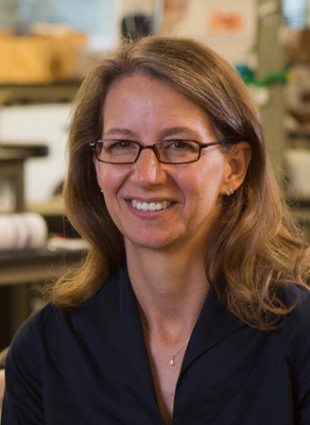David Ruth
713-348-6327
david@rice.edu
Jade Boyd
713-348-6778
jadeboyd@rice.edu
HHMI awards Rice $1.9 million for STEM innovation
Rice will incorporate hands-on problem-solving in more introductory courses
HOUSTON — (May 29, 2014) — The Howard Hughes Medical Institute (HHMI) today awarded a $1.9 million, four-year grant to Rice University to alter several of its introductory science courses to include strategies that have proven extraordinarily successful at increasing retention of science and engineering majors in Rice’s innovative hands-on global health technologies programs.
The new grant is part of a $60 million effort HHMI launched today with 37 grants to develop effective strategies to significantly reduce the attrition rate of students majoring in science, technology, engineering and mathematics, also known as STEM.
According to HHMI, more than 1 million students enter college each year intending to major in in STEM disciplines. Of those, fewer than half complete a STEM baccalaureate degree, and the attrition rate for underrepresented minorities is even worse — as much as 80 percent.
“We know that most of the attrition occurs in the first two years of college, when students are taking introductory ‘gateway’ courses in chemistry, math and biology,” said Sean Carroll, vice president for science education at HHMI. “For some students, the introductory courses are their only exposure to science.”
Rebecca Richards-Kortum, Rice’s Stanley C. Moore Professor in Bioengineering, chair of the Department of Bioengineering and the principal investigator on the new HHMI grant, said Rice does significantly better than the national average at retaining its STEM majors.
“About 60 percent of Rice students pursue STEM degrees, and our faculty have long been committed to keeping them engaged both by incorporating inquiry-based methods in introductory STEM courses and through laboratory research opportunities,” Richards-Kortum said.
Despite these efforts, Richards-Kortum said at least one-quarter of incoming STEM freshmen end up changing to a non-STEM major, and the rates are significantly higher for women and underrepresented minorities.
In 2006, with funding from HHMI, Rice launched a novel undergraduate global health program called Beyond Traditional Borders (BTB), which challenges students to come up with practical solutions to real-world problems in the developing world. The program caught on quickly at Rice; within four years, more than 10 percent of the university’s undergraduates had taken at least one BTB class. Rice institutionalized the program by establishing a minor in global health technologies (GLHT) in 2008.
GLHT students work to solve open-ended challenges beginning in their freshman year, and the curriculum is designed to keep students engaged in real-world problem-solving throughout their entire undergraduate experience. The program has been recognized as a national model for inquiry-based education by both Science magazine and the National Academy of Engineering.
“We’ve found that STEM attrition rates are significantly lower among our global health students,” Richards-Kortum said. “In fact, the program actually spurs some non-STEM students to change their majors to a STEM field.”
Based on this early success, Richards-Kortum and a small group of key faculty will lead a team of 25 Rice faculty to systematically apply the proven framework of the GLHT model to undergraduate education throughout Rice’s Wiess School of Natural Sciences and George R. Brown School of Engineering.
“We are planning to incorporate the hands-on, experiential learning techniques from that program across a wide range of our introductory courses in biology, chemistry and bioengineering,” said Janet Braam, Wiess Professor and chair of the Department of Biochemistry and Cell Biology and one of the HHMI grant key personnel. “We plan to implement a series of project-based STEM courses for students intending to major in three large degree programs — chemistry, bioengineering, and biochemistry and cell biology — that together account for about 40 percent of all STEM degree recipients at Rice.”
The program aims to solidify freshmen students’ interest in and commitment to STEM by immediately engaging them in solving authentic, open-ended scientific and engineering challenges. For sophomores and juniors, the goal is to reinforce skills and interests through courses that engage in open-ended interdisciplinary projects. In addition, the program aims to provide mentoring and support for independent research, as well as monitoring, supplemental tutoring and early research opportunities for at-risk STEM students.
Braam and Richards-Kortum say they hope that this “layered experience” will improve overall STEM graduation rates at Rice by 10 percent in engineering and 15 percent in science. In addition, they hope it will close the gap in rates of STEM persistence for underrepresented minorities by at least half.
-30-
High-resolution IMAGES are available for download at:
https://news2.rice.edu/files/2014/05/0324-RRK-FeldAward-lg.jpg
CAPTION: Rebecca Richards-Kortum
CREDIT: Jeff Fitlow/Rice University
https://news2.rice.edu/files/2014/05/0602_HHMI-Braam-lg.jpg
CAPTION: Janet Braam
CREDIT: Jeff Fitlow/Rice University
Located on a 300-acre forested campus in Houston, Rice University is consistently ranked among the nation’s top 20 universities by U.S. News & World Report. Rice has highly respected schools of Architecture, Business, Continuing Studies, Engineering, Humanities, Music, Natural Sciences and Social Sciences and is home to the Baker Institute for Public Policy. With 3,920 undergraduates and 2,567 graduate students, Rice’s undergraduate student-to-faculty ratio is 6.3-to-1. Its residential college system builds close-knit communities and lifelong friendships, just one reason why Rice has been ranked No. 1 for best quality of life multiple times by the Princeton Review and No. 2 for “best value” among private universities by Kiplinger’s Personal Finance. To read “What they’re saying about Rice,” go here.



